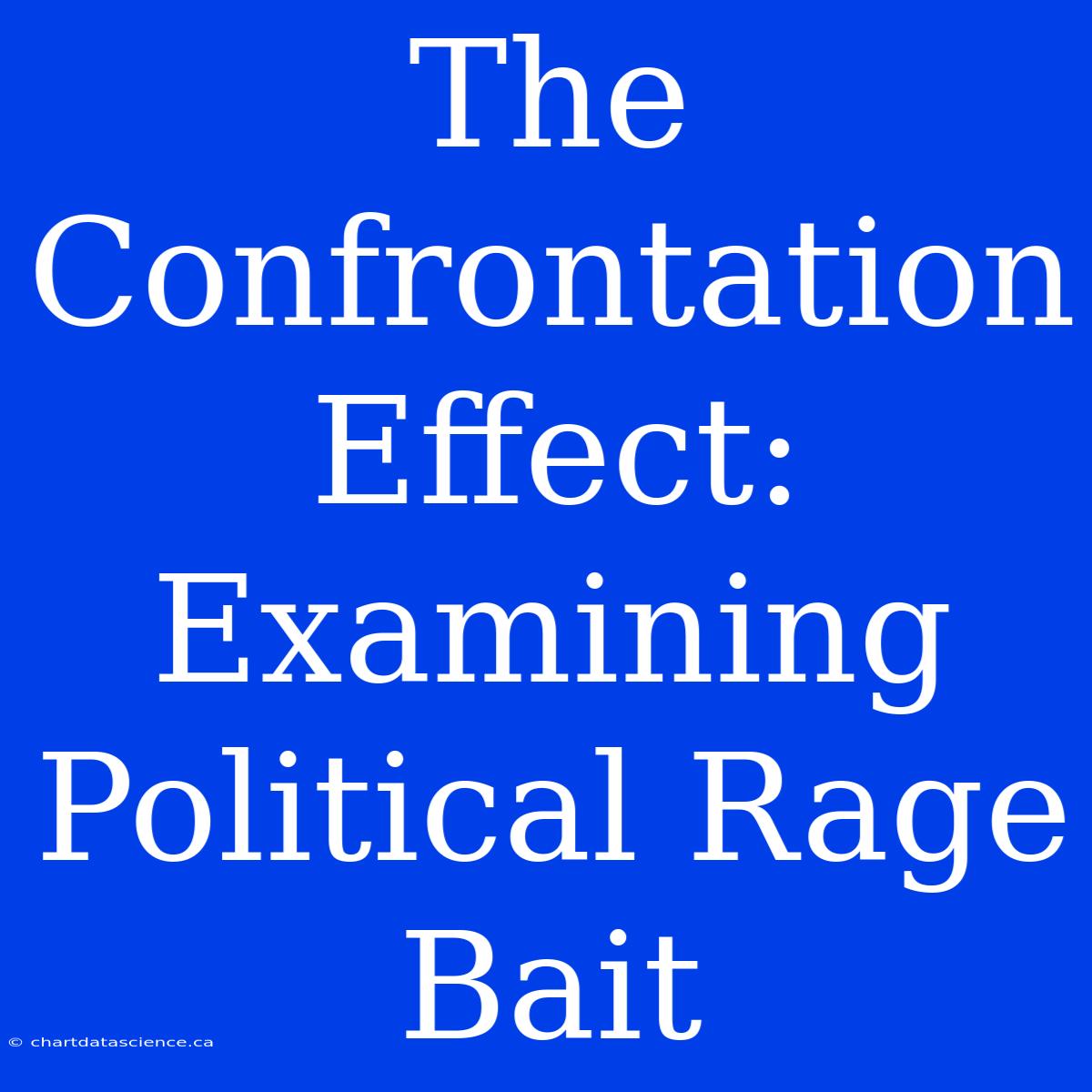The Confrontation Effect: Examining Political Rage Bait
You know that feeling. You see a headline, your blood starts to boil, and before you know it, you're sucked into a vortex of angry comments and heated arguments. This is the "confrontation effect," and it's a powerful tool used in political rhetoric, often disguised as "rage bait."
What is the Confrontation Effect?
The confrontation effect, also known as "reactive devaluation," describes how we tend to dislike things more if they are associated with people or groups we dislike. It's like a knee-jerk reaction; we see something, we instantly judge it, and we react based on our pre-existing biases. This happens with political opinions too! Think about it:
- The "Us vs. Them" Mentality: We're bombarded with messages that paint opposing political viewpoints as fundamentally wrong or dangerous. This fuels our anger and makes us less open to different perspectives.
- Confirmation Bias: We seek out information that confirms our pre-existing beliefs, reinforcing the "us vs. them" divide. This can lead to echo chambers, where we're only exposed to opinions that agree with ours, further solidifying our biases.
- Emotional Triggers: Political rhetoric often uses emotionally charged language to trigger strong reactions. This is "rage bait" – content designed to incite anger and outrage, often for the sake of clicks and engagement.
How Rage Bait Works
Rage bait can take many forms:
- Over-the-top headlines: Designed to grab attention and generate clicks, often using sensationalist language or misleading claims.
- Provocative images or videos: Stirring up strong emotions and pushing buttons.
- Misleading or exaggerated information: Twisting facts or spreading rumors to fuel outrage.
- Personal attacks and insults: Focusing on the individual instead of the issue, further escalating conflict.
Why is this dangerous?
Rage bait can be incredibly harmful:
- Polarization: It fuels political divides and makes it harder for people with different views to find common ground.
- Erosion of trust: It spreads misinformation and undermines trust in legitimate sources of information.
- Violence and extremism: It can lead to real-world consequences, including threats, harassment, and violence.
What can we do?
It's easy to get caught up in the whirlwind of outrage, but there are things we can do to resist the lure of rage bait:
- Be critical of information: Question the source and check for factual accuracy.
- Consider different perspectives: Actively seek out diverse viewpoints and challenge your own assumptions.
- Engage in respectful dialogue: Focus on the issues and avoid personal attacks.
- Support fact-checking and media literacy initiatives: Help combat the spread of misinformation and promote critical thinking.
By being aware of the confrontation effect and its impact on our political discourse, we can all take steps to foster a more respectful and informed public sphere.

